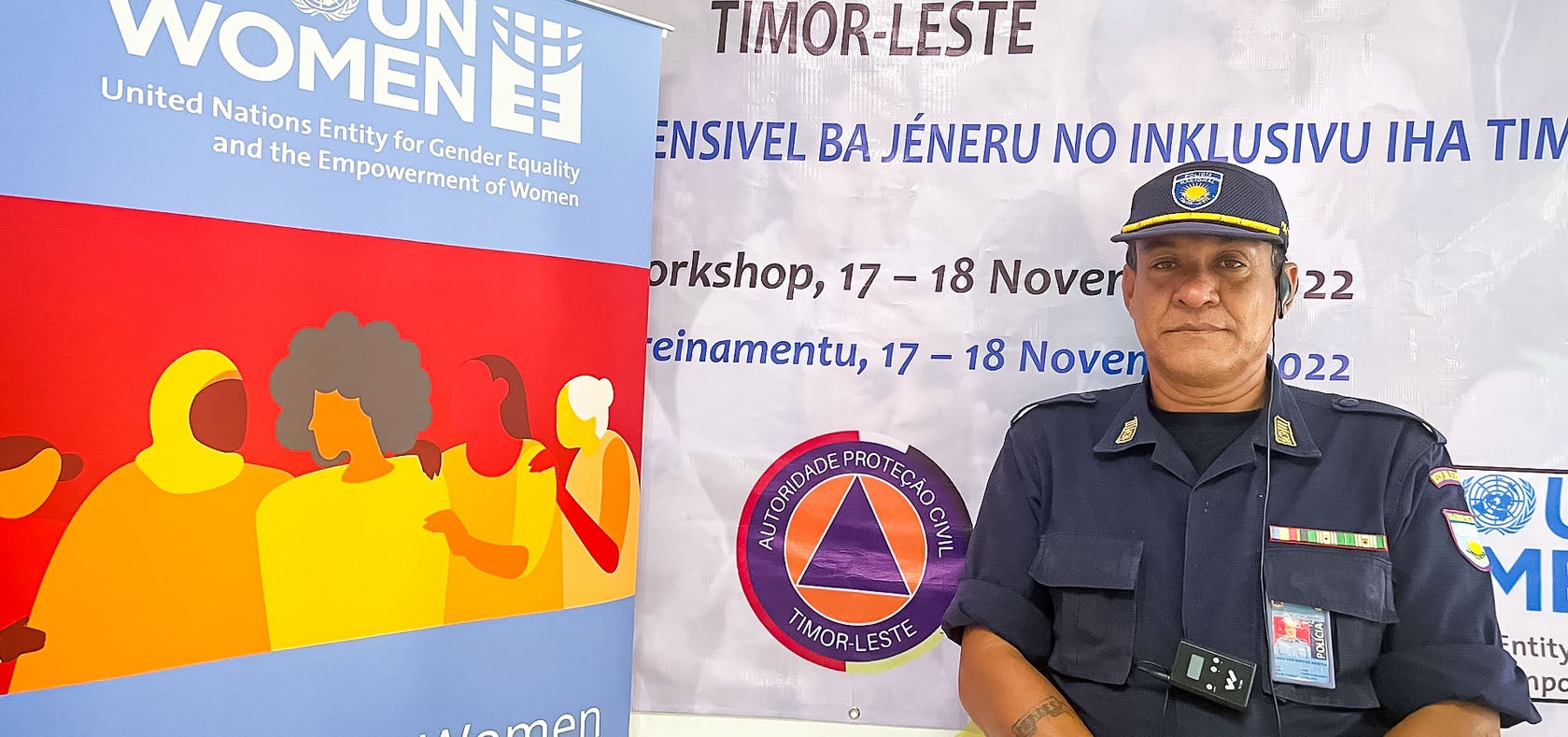Making sure disaster responses meet women’s rights in Timor-Leste
Date:
Author: Kanami Chiba

Frontline responders in Timor-Leste have been undergoing training on the specific requirements of vulnerable groups during disasters. With a lack of women’s leadership in disaster risk management, the country’s response to previous disasters has tended to neglect.
The two-day training sessions have been held since 2022 in partnership between UN Women Timor-Leste and the Civil Protection Authority under the Ministry of Interior. The Gender-Responsive Disaster Risk Reduction training for the frontline responders is conducted on the 17th and 18th of November 2022 to build capacity in actioning, raise awareness, and provide ad-hoc consideration of how vulnerable groups have specific needs in disasters.
“With limited knowledge, we tend to ignore the specific need of vulnerable groups in times of disaster”, said participant Commander Flavio dos Santos, the operational commander of the Civil Protection Authority in the southwestern municipality of Covalima. “Women’s voices shouldn’t be ignored, and all the evacuation centers must not become breeding grounds for gender-based violence. This is exactly the time for a change.”
The shortcomings of the country’s disaster response, including conditions in the emergency shelters, were highlighted in the wake of the widespread flooding in April 2021. The lack of consideration for vulnerable groups in Timor-Leste’s emergency shelters has been documented. Testimonies and reports indicate that the 2021 floods placed already vulnerable groups at further risk of gender-based violence. Most evacuation centers housed women and children and had few or no measures to mitigate such risks, while most men stayed at the family property to protect it.
In the aftermath of the April 2021 floods, the UN reported that particular groups, such as women, children, persons with disabilities, the elderly, and others, experienced an exacerbated impact due to existing vulnerabilities such as gender inequality, high prevalence of violence against women and children, and stigmas towards certain vulnerable groups. However, in Timor-Leste’s 2021 post-disaster needs assessment, the Gender and Social Inclusion sub-sectors are the only ones yet to be measured. Disaster responses and recovery efforts in the future will remain unable to address the specific needs of all if they are not made gender-responsive and inclusive.
“We have left so many people insecure until now,” Commander Flavio adds. “Let’s listen to local input and continue learning. I believe a change in one person’s heart can make a big difference."
Flavio is one of the frontline responders in times of disaster. Thanks to his continuous engagement with the UN Women’s Gender Responsive and Inclusive Disaster Risk Reduction training, he is set to influence on-site decisions to make sure disaster responses are gender-responsive and inclusive of vulnerable groups including women and girls, ensuring their voices are heard and specific needs responded to.